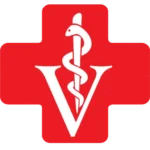This list is compiled of general examples, it is important to remember that less obvious emergencies are not less important. You know your pet best, and we rely on your instincts. If you are concerned about your pet in any way, please call us.
-
- Altered consciousness
- Difficult, labored breathing or rapid breathing
- Pale-colored gums or tongue
- Seizures, staggering, or stumbling
- Collapse or weakness
- Excessive vomiting or diarrhea
- Refusal to eat or drink normally
- Straining to urinate or pass stool
- Attempting to vomit, but cannot
- Bleeding or hemorrhage
- Lacerations or wounds
- Blood in vomit, stool or urine
- Blood from eyes, mouth or in saliva
- Any concern about the eyes or vision
- Non-food objects eaten or stuck on animal
- Exposure to poisonous plant or chemical
- Physically uncomfortable or painful
- Won’t lay down
- Won’t get up or move
- Abdomen is bloated
- Obviously painful
- Prolonged lethargy
- Anything that causes you to doubt that your pet is okay




